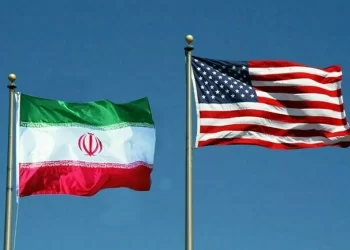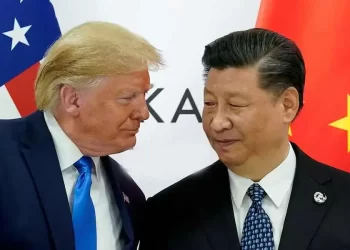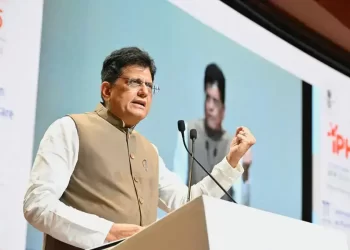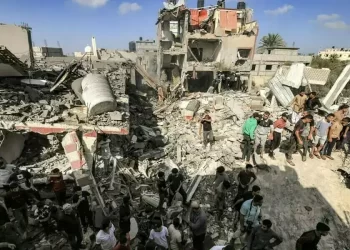SEOUL, South Korea (news agencies) — South Korea’s military said Friday that it had fired warnings shots the previous day to repel North Korean soldiers who temporarily crossed the rivals’ land border for the third time this month.
South Korea’s Joint Chiefs of Staff said several North Korean soldiers while engaging in unspecified construction work on the northern side of the border briefly intruded the military demarcation line that bisects the countries at around 11 a.m. Thursday.
The South Korean military in response broadcasted a warning and fired warning shots, to which the North Korean soldiers retreated. The joint chiefs didn’t immediately release more details.
South Korea’s military has said it believes the previous two border intrusions this month weren’t intentional as the North Korean soldiers have retreated after the warning shots and the North has not returned fire.
The South’s military says it has been observing increased North Korean construction activity in frontline border areas since April, such as installing suspected anti-tank barriers, reinforcing roads and planting land mines.
THIS IS A BREAKING NEWS UPDATE. news agencies’s earlier story is below: A South Korea activists’ group said Friday it again flew large balloons carrying anti-North Korean propaganda leaflets toward North Korea, adding to a campaign that aggravated animosities between the rivals and prompted a resumption of Cold War-style psychological warfare along their border.
The South Korean civilian group, led by North Korean defector Park Sang-hak, said it floated 20 balloons attached with 300,000 propaganda leaflets, 5,000 USB sticks with South Korean pop songs and TV dramas, and 3,000 U.S. dollar bills from the South Korean border town of Paju on Thursday night.
Pyongyang resents such material and fears it could demoralize front-line troops and residents and eventually weaken leader Kim Jong Un’s grip on power, analysts say.
After previous leafletting by Park’s group and other South Korean activists, North Korean launched more than 1,000 balloons that dropped tons of trash in South Korea, smashing roof tiles and windows and causing other property damage.
In retaliation for the trash balloons, South Korea resumed anti-North Korea propaganda broadcasts with military loudspeakers installed at the border for the first time in years, to which Pyongyang warned that Seoul was “creating a prelude to a very dangerous situation.”
Tensions between the Koreas are at their highest in years as Kim accelerates his nuclear weapons and missile development and attempts to strengthen his regional footing by aligning with Russian President Vladimir Putin in a standoff against the U.S.-led West.
On Thursday, South Korea’s government condemned an agreement by Kim and Putin at their summit this week in which their nations vowed to come to each other’s defense in the event of war. In turn, Seoul said it will consider sending arms to Ukraine to help it fight Russia’s invasion.
South Korea, a growing arms exporter with a well-equipped military backed by the United States, has provided humanitarian aid and other support to Ukraine while joining U.S.-led economic sanctions against Moscow. But it has not directly provided arms to Ukraine, citing a long-standing policy of not supplying weapons to countries actively engaged in conflict.
Putin told reporters in Hanoi, Vietnam, on Thursday that supplying weapons to Ukraine would be “a very big mistake” on South Korea’s part. He also said South Korea “shouldn’t worry” about the agreement, if Seoul isn’t planning any aggression against Pyongyang.
North Korea is extremely sensitive to any outside criticism about Kim’s authoritarian rule and his absolute control over its people, most of whom have little access to foreign news.
South Korea’s military said there are signs that North Korea was installing its own speakers at the border, although they weren’t yet working.
The South’s military has also observed the North deploying large numbers of soldiers in frontline areas to build suspected anti-tank barriers, reinforce roads and plant mines in an apparent attempt to fortify their side of the border. Seoul believes the efforts are possibly aimed at preventing North Korean civilians and soldiers from escaping to the South as Kim’s government tries to strengthen its control over people.
In 2015, when South Korea restarted loudspeaker broadcasts for the first time in 11 years, North Korea fired artillery rounds across the border, prompting South Korea to return fire, according to South Korean officials. No casualties were reported.









